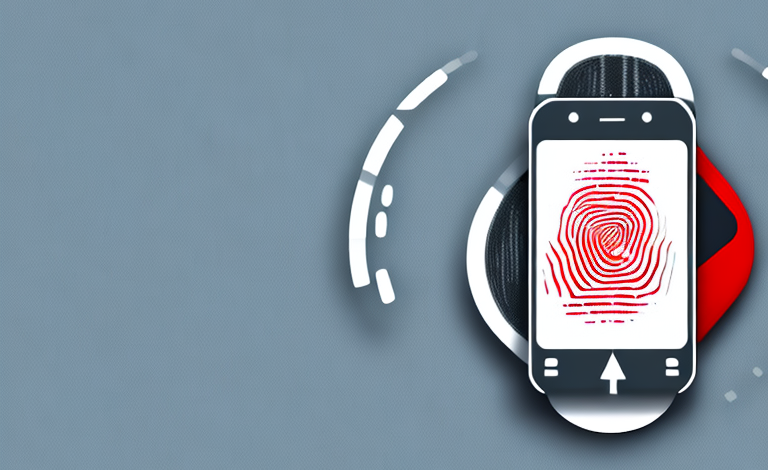If you’re someone who has struggled with the accuracy of your phone’s fingerprint sensor, you’re not alone. Fingerprint sensors have become one of the most popular forms of biometric authentication for mobile devices, but they can be frustrating when they don’t work as well as we expect them to. In this article, we’ll examine the reasons why fingerprint sensors may not work as effectively as we’d like and offer solutions and alternatives to help you authenticate more accurately.
Understanding how fingerprint sensors work
Before we dive into why fingerprint sensors may struggle, let’s first understand how they work. Fingerprint sensors use a small camera or scanner to capture an image of your fingerprint. This image is then processed and compared to the stored image of your fingerprint to determine if it’s a match. If the two images align, your phone will unlock.
One of the advantages of using fingerprint sensors is that they are more secure than traditional passwords or PINs. This is because fingerprints are unique to each individual, making it difficult for someone else to access your device without your permission. Additionally, fingerprint sensors are more convenient as you don’t have to remember a password or PIN, and you can unlock your device with just a touch of your finger.
However, there are some limitations to fingerprint sensors. For example, if your fingers are wet or dirty, the sensor may not be able to capture a clear image of your fingerprint, making it difficult to unlock your device. Similarly, if you have a cut or injury on your finger, the sensor may not be able to recognize your fingerprint. In such cases, you may need to use an alternative method to unlock your device, such as a password or PIN.
Common issues with fingerprint sensors
One of the most common issues with fingerprint sensors is failure to recognize fingerprints. This can be caused by a variety of factors, such as a dirty sensor, damaged fingers, or poor alignment. Additionally, some phone cases or screen protectors can interfere with the scanning process, resulting in failed attempts to unlock your phone.
Another common issue with fingerprint sensors is false positives, where the sensor mistakenly recognizes someone else’s fingerprint as yours. This can happen if someone with a similar fingerprint tries to unlock your phone, or if the sensor is not properly calibrated. It is important to regularly clean your sensor and update your phone’s software to ensure optimal performance.
Factors that affect the accuracy of fingerprint sensors
Several factors can negatively affect the accuracy of fingerprint sensors. For example, if your fingers are wet or oily, it can be more challenging for the sensor to capture an accurate image. Likewise, if you have scars, cuts, or calluses on your fingers, it can be more challenging to authenticate your identity. Similarly, when your phone’s battery is low, fingerprint sensors may struggle to function correctly as they require a consistent power supply.
Another factor that can affect the accuracy of fingerprint sensors is the quality of the sensor itself. Cheaper sensors may not be as accurate as more expensive ones, and they may struggle to capture a clear image of your fingerprint. Additionally, environmental factors such as extreme temperatures or humidity can also impact the performance of fingerprint sensors. It’s important to keep your sensor clean and dry and to use a high-quality sensor to ensure the most accurate results.
How to improve the accuracy of your phone’s fingerprint sensor
Fortunately, several steps can help improve the accuracy of your phone’s fingerprint sensor. These include properly aligning your finger on the sensor, keeping your fingers dry and clean, and avoiding damaged fingers. Additionally, regularly cleaning the sensor and updating your phone’s software can help prevent issues from arising.
Another way to improve the accuracy of your phone’s fingerprint sensor is to register the same finger multiple times. This means that you can register your thumb or index finger in different positions, which can help the sensor recognize your fingerprint more easily. Some phones even allow you to register multiple fingers, which can be useful if you have sweaty or dirty hands.
It’s also important to note that some phone cases or screen protectors can interfere with the accuracy of your fingerprint sensor. If you notice that your sensor is not working properly, try removing any accessories and testing the sensor again. If the issue persists, you may need to contact your phone manufacturer for further assistance.
Alternative authentication methods to consider if your fingerprint sensor isn’t working
If your fingerprint sensor isn’t working correctly, there are several alternative authentication methods you can try. One such option is facial recognition, which relies on your facial features to unlock your phone. Another option is a PIN or password, which is always reliable but can be more tedious to enter than biometric authentication.
Another alternative authentication method to consider is voice recognition. This technology uses your unique voice patterns to verify your identity and grant access to your device. However, it may not be as secure as other methods, as someone with a similar voice could potentially gain access.
If you’re looking for a more advanced option, you can also consider iris scanning. This method uses the unique patterns in your iris to authenticate your identity. It’s highly secure and accurate, but may not be available on all devices and can be more time-consuming than other methods.
Troubleshooting tips for common fingerprint sensor problems
When fingerprint sensors don’t work correctly, there are several troubleshooting tips worth trying. For example, restart your phone and make sure it’s updated to the latest software version. If you’re using a screen protector or phone case, try removing them and re-scanning your fingerprints. Finally, if your fingerprints still aren’t being recognized, try re-registering them within your phone.
Another common issue with fingerprint sensors is that they may not work properly if your fingers are wet or dirty. Make sure to dry your fingers thoroughly before attempting to use the sensor. Additionally, if you have recently applied lotion or hand sanitizer, it may affect the sensor’s ability to read your fingerprints.
If none of these troubleshooting tips work, it’s possible that there may be a hardware issue with your phone’s fingerprint sensor. In this case, it’s best to contact your phone’s manufacturer or bring it to a professional repair shop to diagnose and fix the problem.
How to clean and maintain your phone’s fingerprint sensor for better performance
As we’ve mentioned, maintaining a clean fingerprint sensor is essential for its successful operation. To clean your sensor, use a clean, dry cloth and gently wipe it down to remove any smudges or dirt. Avoid using cleaning solutions or liquids, as these can damage the sensor. Regularly cleaning and maintaining your phone’s fingerprint sensor can help prevent issues from arising and ensure it continues to function correctly.
In addition to regular cleaning, it’s also important to protect your phone’s fingerprint sensor from physical damage. Avoid dropping your phone or exposing it to extreme temperatures, as this can cause the sensor to malfunction. If you notice any cracks or damage to the sensor, it’s best to have it repaired or replaced by a professional.
Another tip for maintaining your phone’s fingerprint sensor is to update your phone’s software regularly. Software updates often include bug fixes and improvements to the phone’s security features, which can help ensure the fingerprint sensor is working properly. Additionally, make sure to only download apps from trusted sources to avoid any potential security risks that could affect the performance of your phone’s fingerprint sensor.
Fingerprint sensors vs. other biometric authentication methods: Pros and cons
While fingerprint sensors have become the most popular form of biometric authentication, they’re not the only one worth considering. For example, facial recognition has become increasingly popular in recent years, while iris scanning and voice recognition are other options available for some devices. Each option has its pros and cons and may be more or less suitable depending on your needs and preferences.
Facial recognition is a biometric authentication method that uses facial features to identify individuals. It is a convenient option as it does not require physical contact with the device, making it a hygienic option in the current pandemic situation. However, it may not be as secure as fingerprint sensors as it can be fooled by photos or videos of the user’s face.
Iris scanning is another biometric authentication method that uses the unique patterns in the iris to identify individuals. It is considered to be one of the most secure biometric authentication methods as the iris is difficult to replicate. However, it requires the user to be in close proximity to the device and may not be as convenient as other options.
The future of fingerprint sensors: What to expect from upcoming technology advancements
While fingerprint sensors have come a long way in recent years, there is still room for improvement. As technology continues to evolve, we can expect to see various advancements in biometric authentication, including larger sensors, improved accuracy, and more advanced security features. It’s an exciting time for biometric authentication, and we can expect many exciting innovations in the future.
While we’ve all experienced the frustration of a failing fingerprint sensor, it’s essential to remember that they’re an excellent tool for keeping our devices secure. By taking proper care of your fingerprint sensor, regularly updating your software, and considering alternative authentication methods, you can unlock your device quickly and easily. They’re just one of the many conveniences that technology has provided, and we can expect exciting innovations to come.
One of the most significant advancements we can expect to see in fingerprint sensor technology is the integration of artificial intelligence. With AI, fingerprint sensors will be able to learn and adapt to the user’s unique biometric data, making them even more accurate and secure. Additionally, we can expect to see fingerprint sensors integrated into more devices, such as cars and home security systems, further enhancing their convenience and security.
Another exciting development in fingerprint sensor technology is the use of ultrasonic sensors. Unlike traditional optical sensors, ultrasonic sensors can detect fingerprints through materials such as glass and metal, making them ideal for use in smartphones with edge-to-edge displays. With the use of ultrasonic sensors, we can expect to see even more innovative smartphone designs in the future.



